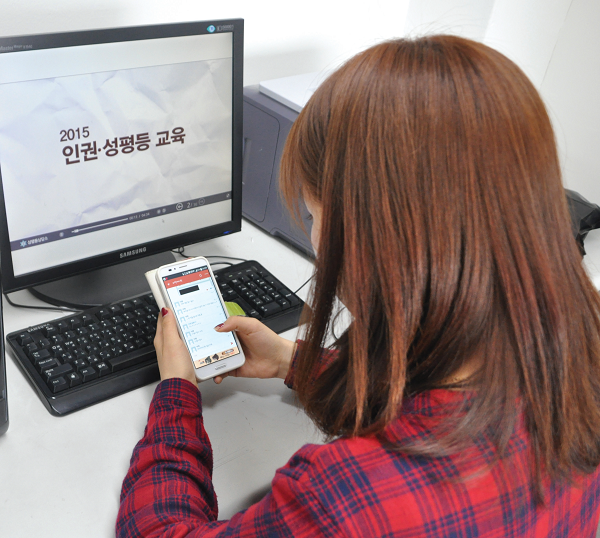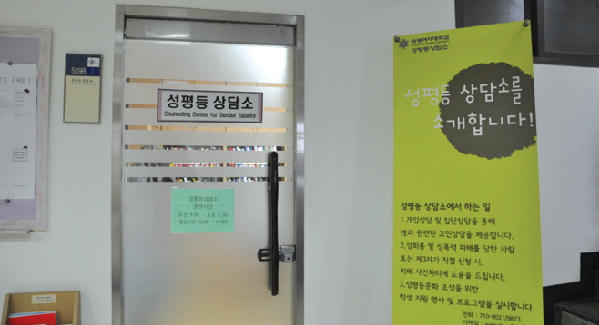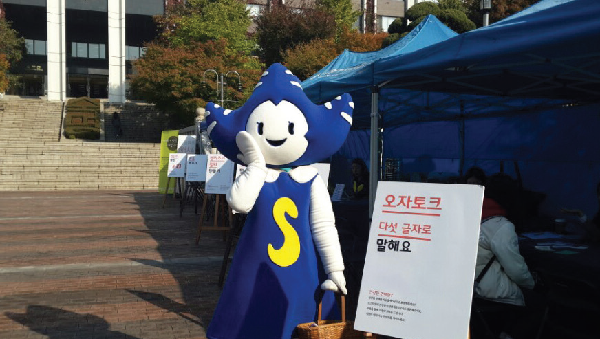
Earlier this month, at one of the universities in Seoul, students were given an assignment in their “Sex and Society” course. The task was as follows: “Students use a mirror or take a selfie to take a detailed photograph of your genitalia.” Some students panicked and rejected the assignments humiliated by its requirement. Also, the outcry was so strong that its controversy spread throughout SNSs and the internet. However, the assignment is quite common in similar European university courses on sex education, which highlights not only the assignment idea, but also the absence of practical sex education in Korea.

Absence of Authentic Sex Education at University
Korea educates its children from elementary school about sex because there is an increasingly higher chance in Korea that sexual experiences happen before middle school. High schoolers are also receiving mandatory sex education before graduation. The Ministry of Gender Equality and Family has also ordered mandatory education on the prevention of sexual harassment and sexual violence, so all enrolled students at Sookmyung Women's University are also required to view the Ministry’s educational video from last semester. Nevertheless, sex education has not really been truly realized in Korean society. This year, universities are having to deal with issues of sexual harassment and sexual molestation. Sexual harassment has gone beyond even the situations of powerless female students and overpowering professors to situations where sexual provocation is being used at orientations hosted by student councils. In other words, current sex education at university isn't as useful as students expected. Expectation of improvement due to sex education at university—sexual harassment and violence—is high, but as of yet, there are no concrete figures indicating any chance has surfaced, for many universities are continuing to hide or turn a blind eye to the harm it is causing. The percentage of persons convicted of committing a sex crime was only 39% (78) schools out of 198 reported cases from the entire nation's four-year colleges.1 To make matter worse, seminars centred on “Love and Romance” are often held for students, but few lectures dealt with date violence like rape are seldom accessible. As a result, sex crimes on campus continue. Now is the time to increase awareness through more appropriate and realistic sex education courses.

Reality of Sex Education, A Castle in the Sky
The fundamental problem with sex education provided by universities, which has made an attempt to address sex crimes on campus, is known widely. At present, there are no sex education departments at Korean universities, so there are no experts in that field; that is, the people offering the sex education lectures have not done any in-depth research on sex education. Most counselors at counseling centers are specialists in psychological counseling, not sex education. Because not many counselors have expertise in the area, it is impossible to provide students with quality education and adequate textbooks. Some universities offer sex education courses in their culture studies department, but the 2015 Sookmyung Women’s University course timetable did not offer any such courses. Jung Danmi, Department of Food & Nutrition '13 said, "I was looking forward to taking a course that dealt with practical sex education because up until university, I’d only followed the national mandatory sex education curriculum. I was disappointed that no courses on the subject were offered this semester." It is difficult to find professional expert teachers in this area because most universities’ counseling centers just manage sex education and perform psychological counseling. Furthermore, current sex education main presents knowledge. It is not taught in accordance with the comprehensive education of humanism. In Korea, sex education deals with the subject matter in terms of biological and functional aspects rather than ethical aspects such as "attitude." Especially, compared to other nations, which look at the preciousness of life and examine one’s body, Korea tends to focus only on topics like abortion, contraception, and the prevention of sexual crimes. Sexual knowledge without ethics education may encourage sexual harrassment like these days’ sex crimes occurring at universities. To give a few examples of the way Korea is attempting to modify its sex education, there is the Sex Health of Students at Ewha Womans University, What is the Sex? at Kyunghee University, and Scientific Understanding of Sex at Korea University. Each of these courses enables students to share their own experiences along with passing knowledge onto students. Still, a number of students are complaining that the courses present information they already know. Kim Solseom, student at Korea University said, "I took Scientific Understanding of Sex last semester, but I was dissatisfied with the content, which I was already familiar with from middle school. Many students were disappointed; they expected something different."

PHOTO BY HSW
Lay the Foundation Firmly


To truly offer “real” sex education, universities have to employ professionals in the sex education field. At university, according to a survey by the National Human Rights Commission of Korea, only 26 universities out of 280 have action plans for sexual assault and harassment counselling, and the survey also found that only 34% of counselors held permanent positions at campus counseling centers.2 At Sookmyung Women's University, there is only one expert in the field working at the Counseling Center for Gender Equality located in Queen Sunheon Building. Besides the showing of videos like present sex education, experts with superior teaching materials would enable students to recognize the significance and importance of sex more naturally than now.
In addition, sex education should be taught with the ultimate goal of cultivating students’ personalities and not be knowledge-based learning. Sex education should seek the betterment of one’s character by examining the preciousness of life, respect for oneself and others, one’s sense of responsibility, the mystery of the birth of life, male and female differences, and so on. After establishing a more mature consciousness about sex through ethical sex education, students will be able to better comprehend the need to study the biological and functional content of sex. Without proper education about the ethical implications, sex crimes will continue to rise on campus between professors and students and upper year students and lower year students. There are many ways in which students could enjoy learning about the ethical implications of sex, which tends to be a difficult subject to explore for students. For instance, the Sex Equality Festival hosted by the Sookmyung Counseling Center for Gender Equality last semester, presented not only general content, but also more importantly on. These events are fun for students with their activities, quizzes and prizes. Woo Garam, who participated in the festival said, "Unlike one-way sex education such watching mindlessly at videos, I had more fun learning through firsthand experience and quizzes."
Expecting Change at Universities
Kim Eunhae, Chief of Korea Sexual Violence Relief Center said, "Rather than offering large scale lectures on the subject, sex education should be carried out in an environment that centers on small groups of students who communicate and discuss sexual decisions."3 Some people say sex education is essential for a healthy society. In addition to this claim, some feel that all of society needs to take notice of the seriousness of sex crimes on campus and the increasing number of sexual harassment cases. To resolve the concerns, fundamental sex education needs extensive reforms. Sookmyung Women's University needs to be the starting point for this improvement.

1 Park Junyoung, "Never-ending Sexual Harassment Within University," BridgeEconomy, February 15, 2015
2 Kim Hyunbin, “Universities are Trying to Prevent Sex Crime Rumors at University,” Hankookilbo, March 19, 2015
3 Kim Minjee, “Love Lectures are Increasing, But Sex Education is Decreasing at University,” Kyungnamilbo, April 09, 2015


